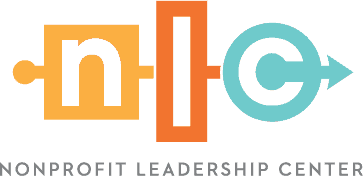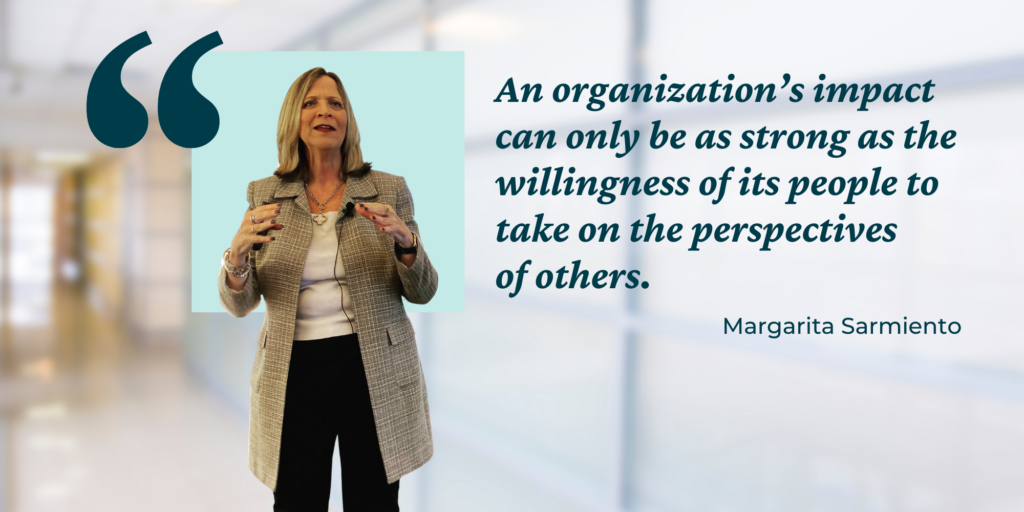We each carry a different perspective into the interactions we have and situations we experience. In other words, my reality is not your reality. Our bias, or our tendency to see the world through a lens that favors our own reality, shapes what we see. As we go through life understanding different realities, our own perspectives and opinions change. None of us see the world the same way we saw it last year or even last month. Our beliefs grow and change as we see that shared experiences do not always translate into shared outcomes.
Today, the need for us to come closer to our perceived realities is strong. While far from new, ongoing racial injustices have accelerated the need for us to challenge our perceptions and biases. They have also highlighted the stark truth that in some instances, personal experience is not enough. Because of this, it is crucial that we make a conscious effort to come together, seek out others with different perspectives and experiences, ask hard questions, and listen. In the workplace, this should be happening regularly, in one-on-one conversations as well as in group settings. An organization’s impact can only be as strong as the willingness of its people to take on the perspectives of others.
These conversations can be uncomfortable and difficult to have because they often have more to do with emotion than fact. As we address topics of race, equality, justice, police brutality and other hard issues, discussions become especially difficult. Vulnerability and fear mix with anxiety, shame and anger. We need to be willing to take the first step, so these difficult conversations can become easier and we can begin moving toward long-lasting and impactful change.
READ NEXT: Leaders Who Authentically Embrace Diversity, Equity & Inclusion Believe These 8 Things
3 Things to Remember During Difficult Conversations
Here are some ways to improve the outcome of uncomfortable conversations while respecting the concerns and opinions of your coworkers and constituents.
1. Control the one thing you can control: Yourself and your actions.
- Commit to authenticity: Be willing to say “I’m sorry, I didn’t know or I never took the time to better understand …”
- Identify and admit your own preconceptions and biases.
- Adjust your speaking style when necessary. Beware of speaking in absolutes like “always” or “never.”
2. Prioritize relationships over being right.
- Your reality is not someone else’s reality. Let go of the need to prove your point.
- Accept what others share as their truth. Genuinely listen to the lived experiences of others.
- Be willing to admit you were wrong and apologize if necessary. If on the receiving side, consider giving the benefit of the doubt, and focus on moving forward.
3. Focus on why these conversations are important.
- Admit this is not easy; acknowledge concerns and stress the benefits.
- Accept that no one has all the answers, and commit to strive for doing better/your best.
- Approach conversations with a mindset to learn, and when you know better do better.
Tony Robbins once said, “To effectively communicate, we must realize that we are all different in the way we perceive the world. We must use this understanding as a guide to our communication with others.” I would add that we must start from a place of humility, focusing more on what we hear, rather than what we are trying to say. Instead of dodging potentially controversial conversations, use them to increase awareness, mutual understanding, and personal growth. Not only will we become better human beings, but we will also increase the effectiveness and authenticity of our organizations and improve our world.
Overcome Unconscious Bias
The attitudes and biases we carry that we’re not even aware of can dictate our perceptions of ourselves and others. This influences our behavior, both at work and in life.
Join the Nonprofit Leadership Center for our upcoming class: Overcome Unconscious Bias. In this interactive class, you will:
- Learn how unconscious bias impacts beliefs, values and actions and contributes to organizational cultures that either foster or stifle diversity and inclusion
- Better understand your personal unconscious biases to foster more genuine interactions
- Consciously choose to create a workplace that encourages authenticity and inclusion


